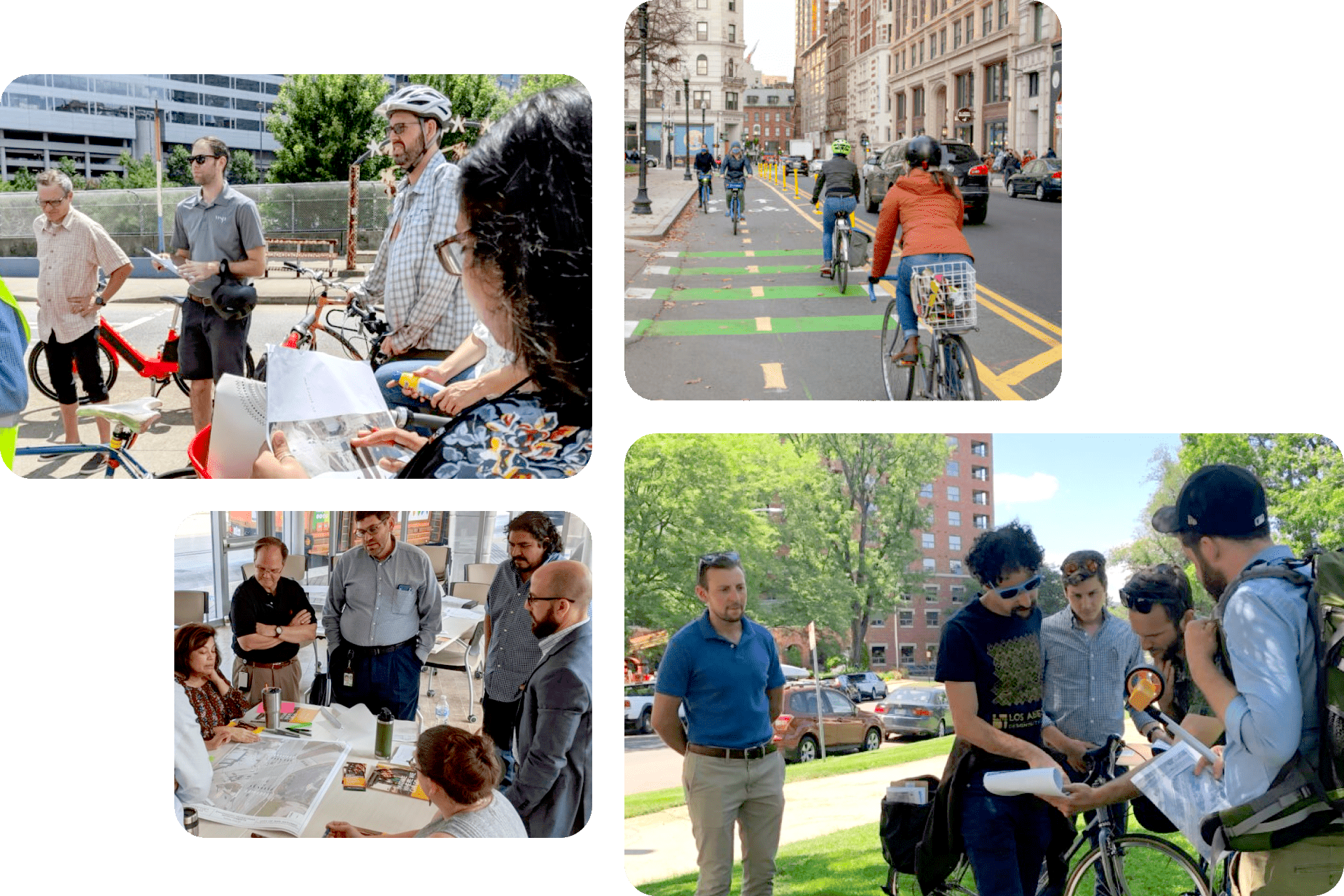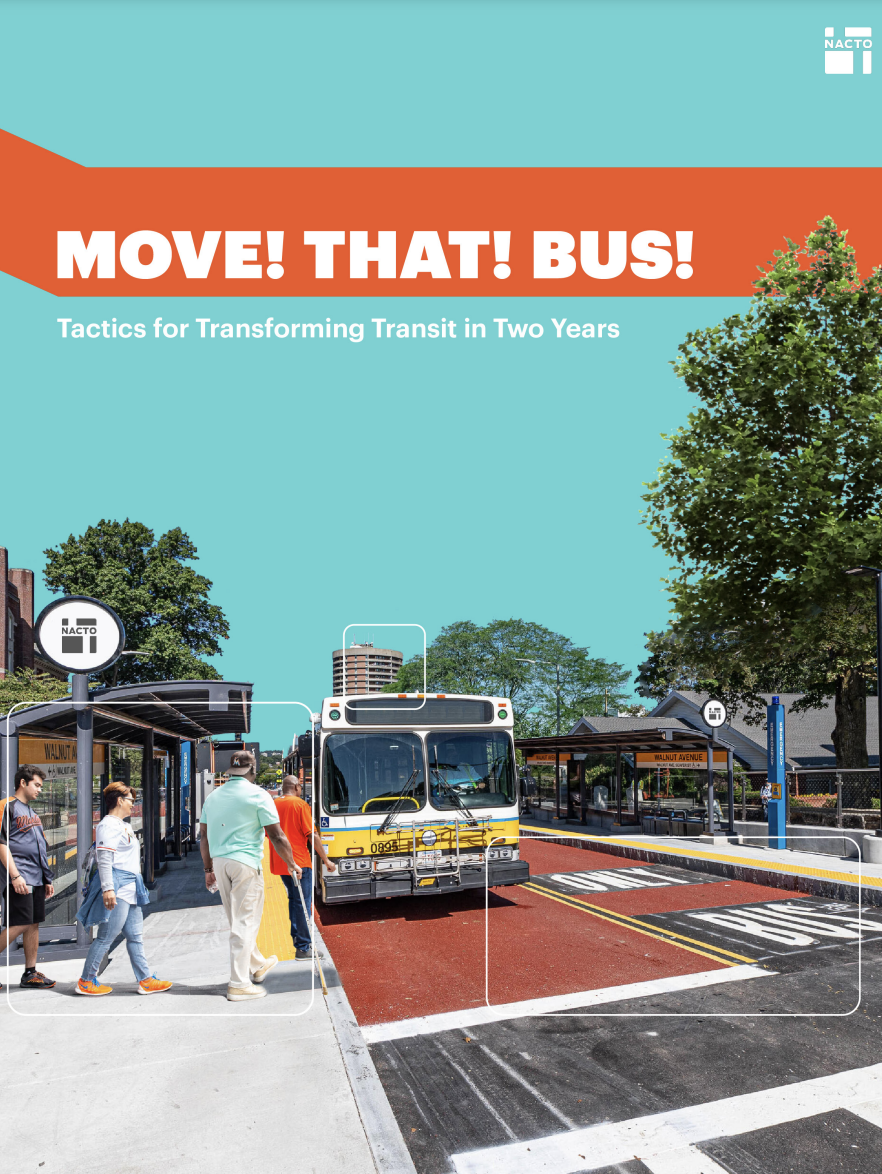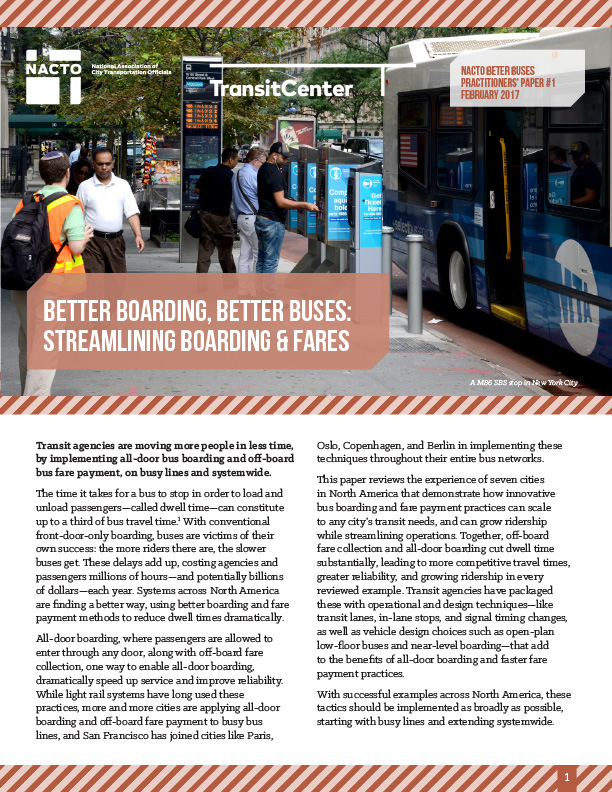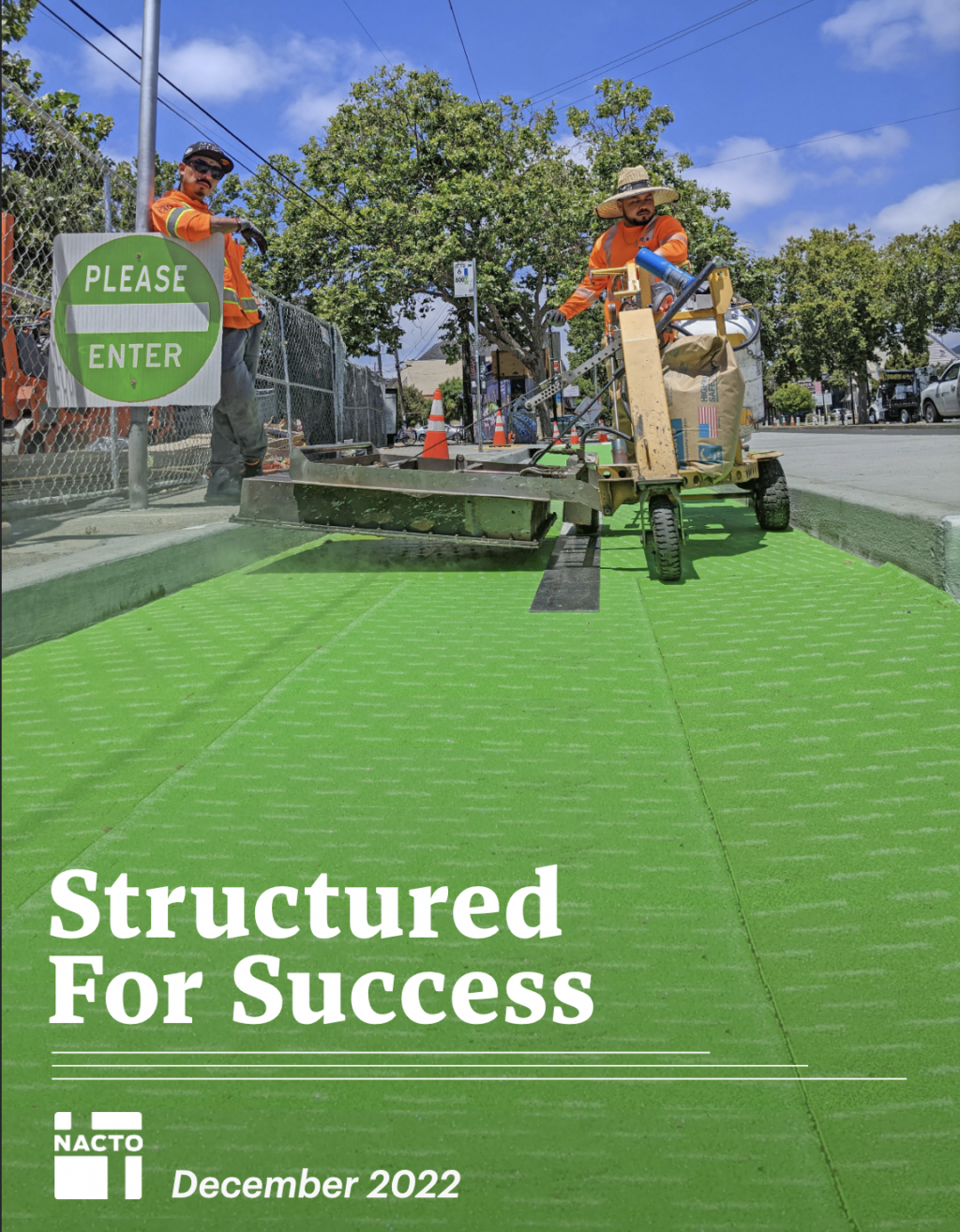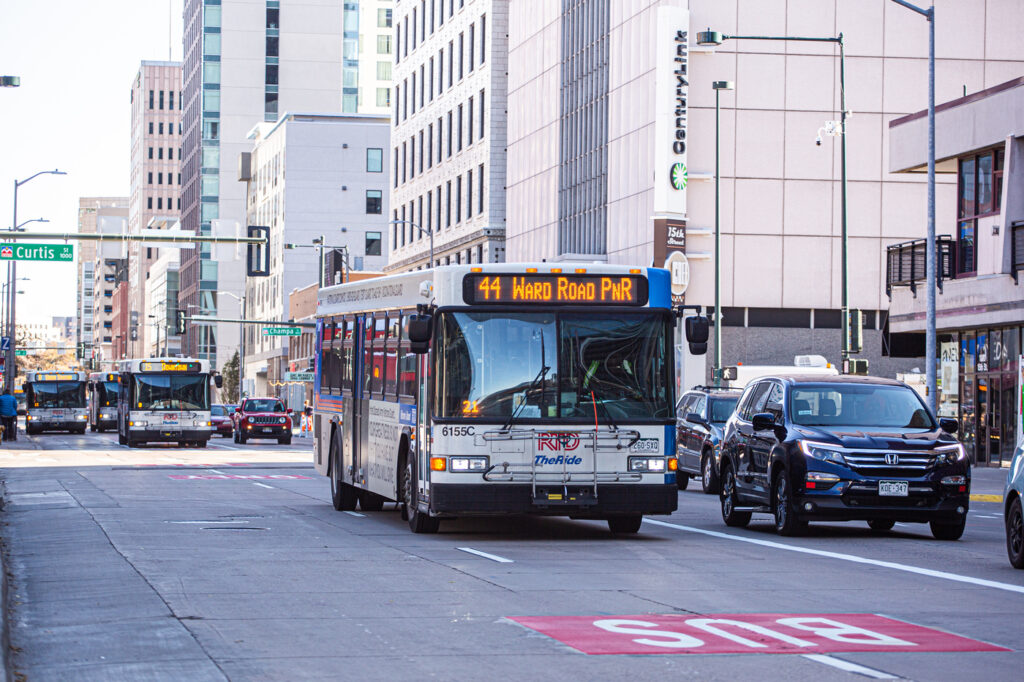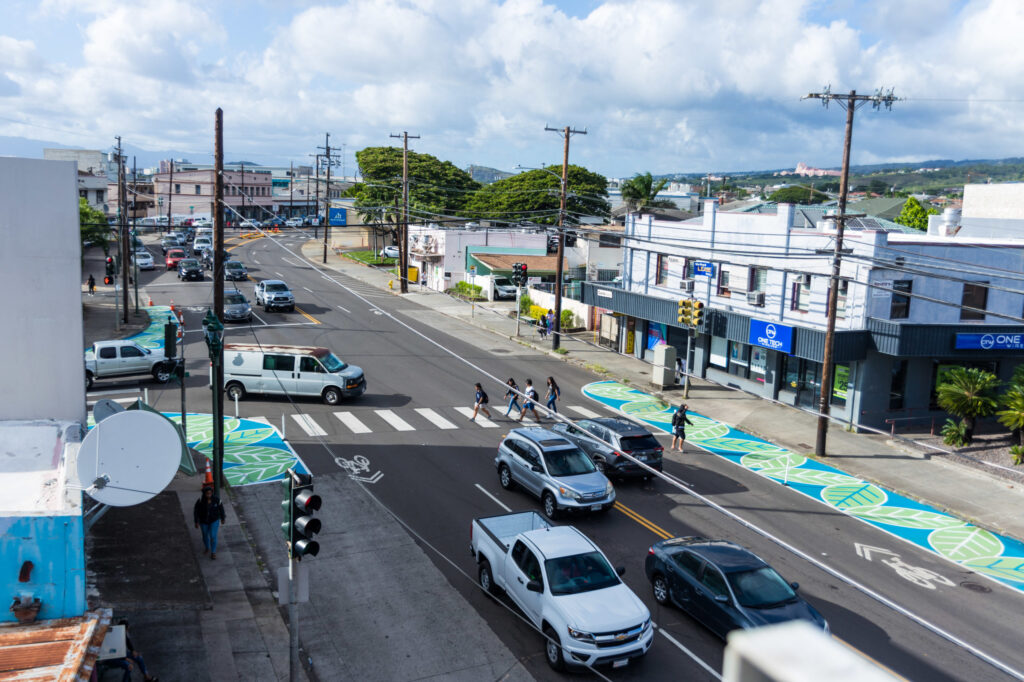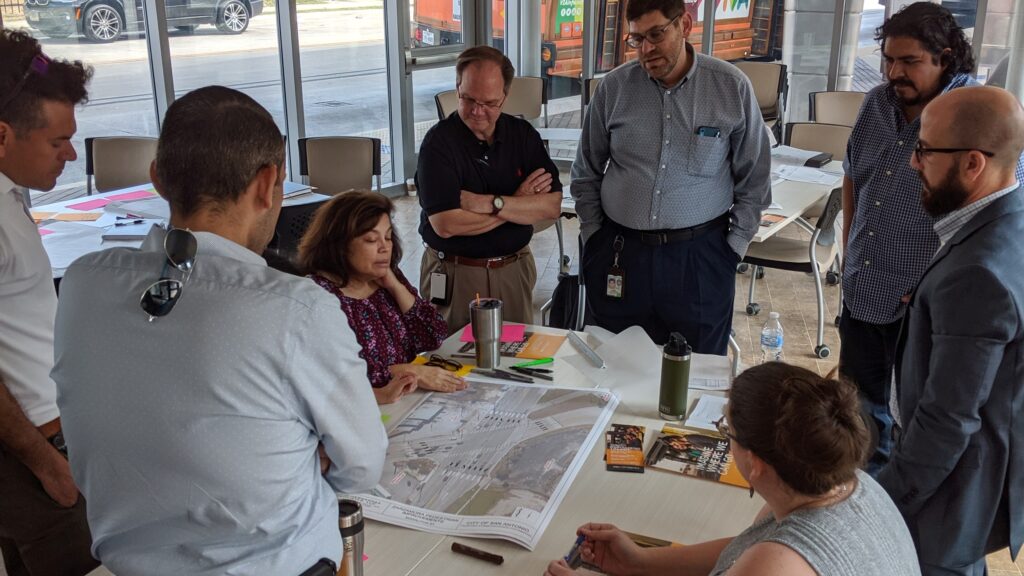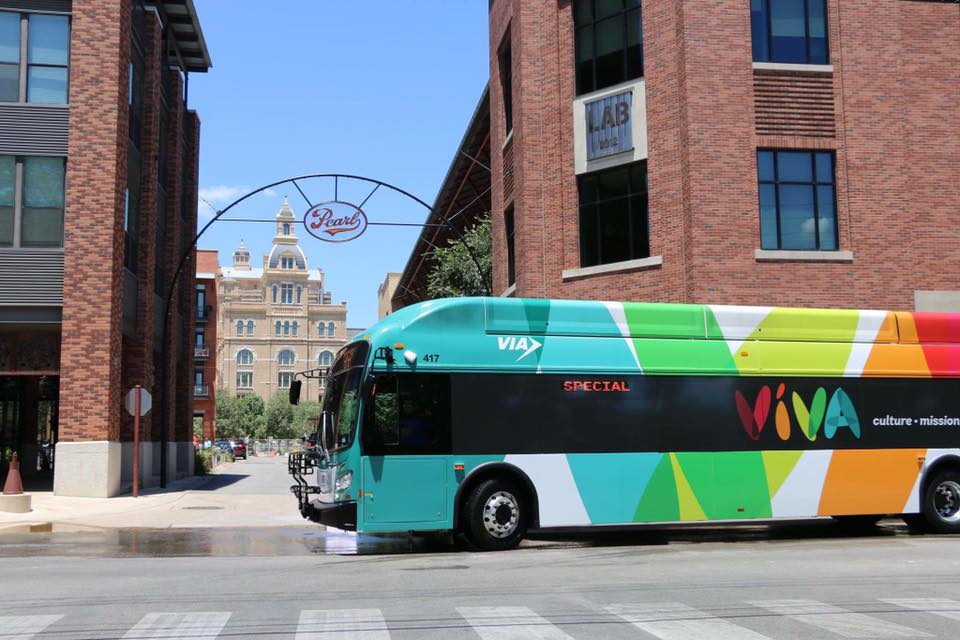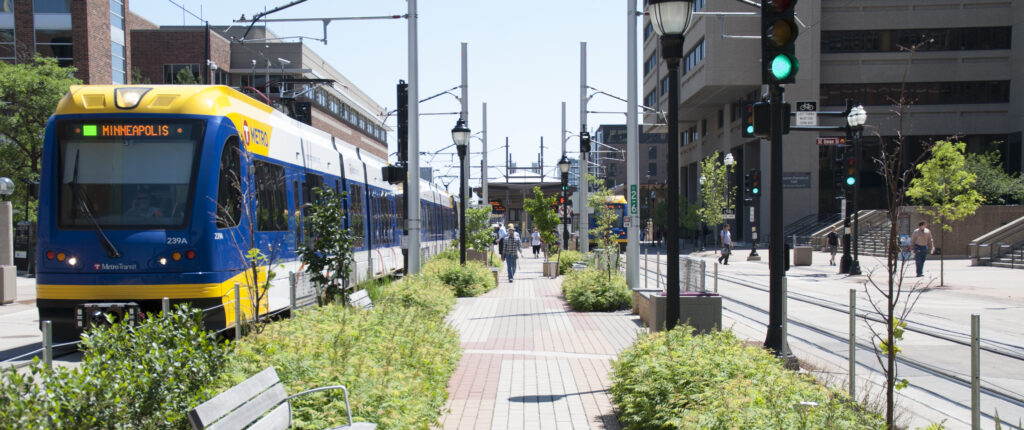City Mayors have significant authority over two of the highest carbon-emitting sectors: transportation and buildings. From 2019-2021, the American Cities Climate Challenge leveraged this authority by providing expert support to 25 cities working to realize their aggressive carbon reduction goals.
NACTO supported the cities by offering broad technical and policy guidance, conducting city-specific workshops and trainings, providing one-on-one technical assistance to city staff, and providing in-depth “Accelerator” support in six cities.
Throughout the Climate Challenge, NACTO conducted:
- 10 public webinars
- 6 workshops on safe speeds, project delivery, agency structure, transit metrics, communications, and equitable & inclusive engagement
- 3 on-the-ground design trainings in Cincinnati, St. Petersburg, and Honolulu
- 8 virtual design charrettes with Minneapolis, Charlotte, Washington DC, Philadelphia, San Jose, Saint Paul, Honolulu, and San Diego
- 2 virtual policy charrettes with Charleston and Philadelphia
- 7 cities-only webinars
Climate Challenge City Accelerators
NACTO also worked in depth with three cities–Minneapolis, Philadelphia, and San Antonio–to accelerate the implementation of high-quality on-street transit projects, and three cities–Atlanta, Boston, and Denver–to rapidly expand their bike networks. From 2019-2020, this approach provided targeted support to help each city rapidly develop new transportation infrastructure and establish internal procedures to continue building impactful projects after the Climate Challenge.
Watch Public Webinars
- Curbing Carbon Emissions: Realizing Sustainability Goals with Progressive Curbside Management
- Avoiding Gridlock: Strategies to Keep Cities Moving in a Pandemic & Beyond
- Equitable Public Engagement in Transportation Budgets
- Thinking Outside the Box: Urban Freight & Delivery During COVID-19
- Streateries: Creating Space for Physical Distance at Restaurants
- Essential Movement: Building Temporary Bicycle & Pedestrian Facilities During COVID-19
- Speed Management on Silent Streets: Tools & Tactics for Reducing Speeds
- Community Engagement During COVID-19
- Slow, Shared, and Safe: Closing Streets to Thru-Traffic During the Coronavirus
- City Streets during Coronavirus: a Public Health Perspective
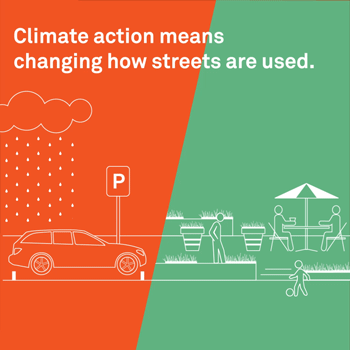
Featured
2019 Climate Week Graphics
Download the graphics!
